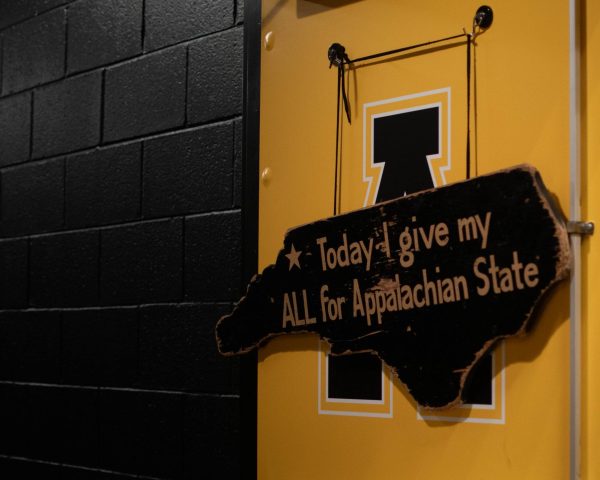Students lobby to legalize skateboards
February 26, 2013

Appalachian State’s Sustainability Council is working to make human-powered transportation, such as skateboards, legal in the town of Boone.
Senior Sheila Ostroff is a student working with the council.
“Because we are a nationally recognized university for our sustainable development program, we need to walk the walk,” Ostroff, an interdisciplinary studies major, said.
The town of Boone needs to legalize this mode of transportation first before Appalachian State University considers making it legal on campus, Ostroff said.
Eric Frauman, associate professor of Health, Leisure & Exercise Science, and Sustainability Council’s transportation subcommittee chair, has set up a stakeholders meeting Tuesday as a forum of discussion to attempt to initiate possible constructions of the human-powered transportation proposal, and a formal plan of action.
The council also has possible models for a proposal, such as North Carolina State University’s Parking and Transportation Ordinance pertaining to skateboards, roller skates and in-line skates.
“Skateboarding is not a crime… however, acts that may endanger anyone, or that may damage any property, may be crimes, and are not considered harmless activities,” according to N.C. State’s ordinance.
Possible restrictions would include prohibiting tricks such as grinding due to applicable damage to both private and public property, but legalizing ollies and manuals as means of balancing and avoiding common roadblocks.
A transportation study conducted last year showed that among the general population, a significant percentage of students had a strong, positive response toward legalizing this type of eco-friendly transportation, Frauman said.
Currently, an individual caught skateboarding pays a $50 fine from Boone Police and another $50 fine if the individual was not wearing a helmet.
Shane Robbins, a Sargent at the Public Information Office in the Boone Police Department said many businesses in the downtown area have “no skateboarding” signs mostly due to the fact that insurance companies require them to have it to prevent liability issues.
Story: MICHELLE PIERCE, Intern News Reporter
Photo Illustration: Olivia Wilkes












